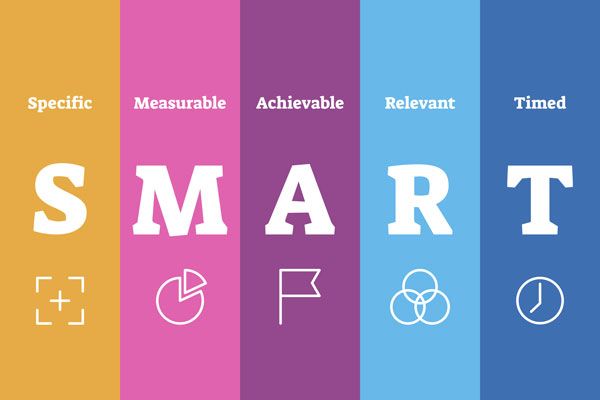Developmental psychology proposes that everything that happens to us impacts, to lesser or greater degree, the way our brain develops. So, on top of our basic brain structure and inherent temperaments, the role of parents is key in providing experiences that will help develop a resilient, well-integrated brain. Parents who speak to their children about emotions and how to understand and manage them, facilitate their children developing emotional intelligence. Likewise, children, whose parents nurture a sense of curiosity and courage, are more eager to explore ideas and opportunities in the world and to develop aspirations and willingness to set goals for themselves. One of the biggest mistakes that parents make is wanting their children to live in the image of the parents and according to their definition of success. When children nourish their own dreams and develop their own goals, they are much more likely to succeed.
A study by the Statistic Brain Research Institute finds that 45 percent of Americans usually make goals; 17 percent infrequently make goals; and 38 percent never make goals. The study also claims that a mere 8 percent of people achieve their New Year’s resolution, with 92 percent failing to attain their goal. So how do we get our teens to set goals and stay focused on them? Presented below is a widely used criteria, SMART, guidelines that can be used in the setting and attaining of goals. Also noted are ways that parents can support their teens in the process. Pertinent verses from the Qur’an are presented for each point.
S = Specific
M = Measurable
A = Attainable
R = Relevant
T = Time-bound
Goals Must Be Specific
In the Qur’an, Allah states, “We shall set up scales of justice for the Day of Judgment, so that not a soul will be dealt with unjustly in the least, and if there be the weight of a mustard seed, We will bring it; and sufficient are We as reckoners” (21:47). Allah’s plan for accountability is so specific that the smallest deed, so small it is compared to the size of a mustard seed, will be placed on the scales of justice.
Likewise, our aspiring teen must be very specific in his or her goal. If the goal is long-term, even a life goal, then there should be milestones that the teen should aim for, on a daily, weekly, monthly, and yearly basis. For example, if the goal is to be an NBA player, there can be daily practice times allotted, monthly skill attainments, and a year by which the teen aims to get drafted to an NBA team.
The parental involvement here should be one of encouragement for their teenager to make specific goals, goals that are defined and laid out with milestones that are very specific. Here, again, it’s important that parents not impose their desire to see their children striving for goals that would be a reflection of the parents and their vision and priorities. The role of the parent is to help the teen draft their own goal, on their own terms.
Goals Must Be Measurable
Striving toward a goal is a process and there must be milestones that are achieved in pursuit of the goal. Each milestone that is met is a further motivation to stay on track and push further along the way. These milestones are like stages in a development of a skill or a mastery of some sort. In the Qur’an, Allah talks about the stages of development of the human fetus. “Verily We created man from an essence of clay; then We made the drop into a clinging substance, then fashioned it into a lump. Then We created the lump into bones and then clothed the bones with flesh; and then We produce it as another creation. So blessed is Allah, the best of creators” (Qur’an 23:12-14).
Allah outlines the stages of development with discernible outcomes and benchmarks, and we know from the study of fetal development that there is a clear timing for each stage of development of the fetus in the womb. So, our young aspiring NBA player must highlight important skills and experience that he wants to attain by a certain time. This is how he will measure his progress as he works toward his goal. The parents can help the teen by reminding him that the milestones are important but that he can always reassess where he is on the path and make necessary or desired adjustments. Milestones are simply measurable signifiers in an ongoing development as one aims toward mastery.
Goals Must Be Attainable
Allah mentions in the Qur’an, “And establish prayer and give zakat and obey the Messenger – that you may receive mercy” (24:56). And in another verse, He says, “O you who believe! Verily, intoxicants and games of chance and idols and divining arrows are an abomination from the work of Satan. So, avoid it so that you may be successful” (5:90). These verses indicate some things that believers should do and some things they should avoid in order to achieve the ultimate goal! In the same way, the teen who sets a goal must know what to do and what to avoid in order for his or her goal to be attainable. If not, they have nothing but a formula for failure.
Now if the measurable benchmarks set by our potential NBA player are too demanding, cultivating unhappiness or frustration, they will not be attained. Avoiding unrealistic benchmarks guards against the teen feeling demotivated and deterred from continuing on his path toward the goal. The parent can help the teen draft their daily schedules in alignment with the goal. Help them come up with a list of priorities — for example, schoolwork, religious duties and activities, social and recreational time, in addition to working toward the goal. The parent can discuss with the teen the importance of refraining from anything that may lead to hurdles or setbacks in attaining the goal such as occupying their valuable time in wasteful activities. It is imperative for the parent to set an example through role modeling by setting of priorities in their own life and working toward attainable goals.
Goals Must Be Relevant
A very critical aspect of a goal is that it be relevant to the individual, an objective that is ardently desired, and not an idea for a goal presented by someone else. It must make sense for the teen for it to be deemed doable and create the inner spark to chase it. The Qur’an makes clear why practicing Islam and worshipping Allah as prescribed is relevant to human beings and why it is the ultimate goal. “Their Lord gives them good tidings of mercy from Him and approval and of gardens for them wherein is enduring pleasure, abiding therein forever. Indeed, Allah has with Him a great reward” (9:21-22).
The goal chosen by a teenager must be relevant to him or her. It must have significance to them personally for them to stay motivated and work hard toward their objective. Even the action plan that the teen makes must be appropriate and relevant to their particular circumstances. If Michael Jordan used to practice 20 hours a day and eat six eggs for breakfast, that does not mean that the teen who aspires to play in the NBA needs to do the same. The parent can help the teen make sure that their chosen goal really matters to them and that they are willing to put in the time and effort to achieve it.
Goals Must Be Time-Bound
Finally, every goal must be time-bound. We are reminded in the Qur’an that we have a prescribed time in this world to accomplish what we set out to do. We are reminded that this life is fleeting and time-bound. “Allah is the one who created you from weakness, then made after weakness strength, then made after strength weakness and white hair. He creates what He wills, and He is the Knowing, the All-powerful” (30:54).
Likewise, the teen must keep in mind that his goal must be time-bound as well, not open-ended so that he or she feels too casual and easygoing about it. The point here is that time plays a pivotal role in working toward and achieving one’s goal. A parent can help their teen by advising him or her to mark certain dates on their calendar to revisit their goal and check how much has been achieved and if not, amend and refresh certain areas to facilitate achieving their target. One common obstacle to achieving a goal is the constant barrage of distractions. It is up to the parents to demonstrate patience and self-discipline in their own lives to set a good example for their teen.
A Valuable Gift
Summing it up, the SMART acronym provides a set of criteria that can be used in goal-setting. Thus, we know that goals must be specific. And indeed, every specific and attainable goal is healthy and beneficial for your teen. Encourage your teen to set their goals high, but to make sure their milestones are measurable and that the goal itself, as well as its actionable parts, are relevant to them, something that matters to them personally. Work diligently with your teen towards achieving their goals by guiding them to filter out distractions, making sure they realize that the best use of time is essential to achieving any goal, that goals must be time-bound. There will be pitfalls and hurdles along the way in the journey, but help your teen remember that it’s all about rising after a fall and picking up the positive momentum once again. Through SMART, parents can give their teens a valuable gift —the gift of setting and achieving goals. In this way they will thrive and, in shaa’ Allah, be successful in their lives!






